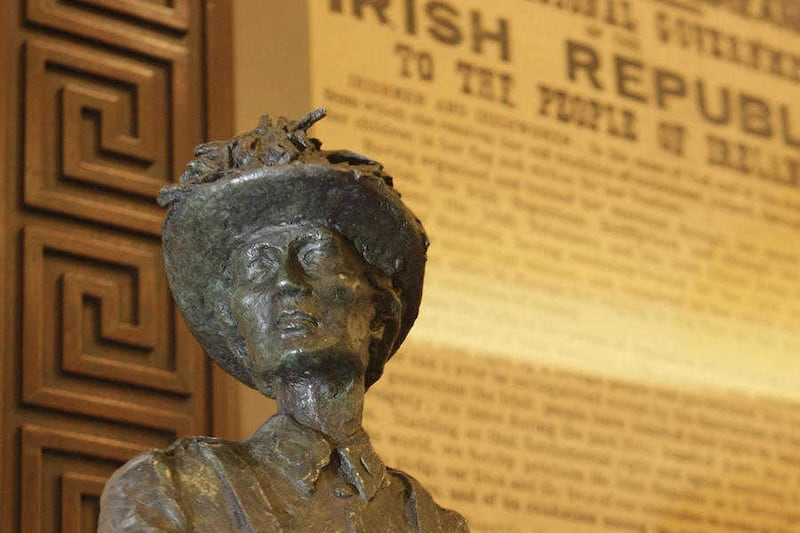THE role of Irish women in winning the 'propaganda war' following military defeat of the Easter Rising is being marked with a special conference.
The brutal British reaction to the rebels - with imprisonment, interment and execution - saw women take on the mantle of preservers of the ideals and aspirations, determined to win the hearts and minds of the population who had initially been ambivalent towards the Rising.
Vigils were held outside many public buildings including Kilmainham Jail.
Pictures of women on their knees, praying, began to appear in the daily newspapers and prompted the Catholic Church to speak out against the executions.
The women also began to collect funds for the dependants of the executed and the imprisoned and demonstrations, meetings, public talks and lectures were held.
It helped keep the spirit of the Rebellion alive, along with their goal of women's suffrage, and the message gained ground with the people at home and Irish Americans.
The Sligo Field Club's 8th Annual Conference `Ireland's Women: Revolution and Remembrance' will examine the role of women, both directly and indirectly, in the revolutionary period in Ireland, particularly in this centenary year.
The conference will take place over the weekend of May 13/15 at Lissadell House, the childhood home of Constance Markievicz.
All events on Friday evening are free and include a talk on the Women in the Poetry of WB Yeats, a performance of the play Cathleen Ní Houlihan and a musical treat from the group Saile, a group of young musicians from Sligo and Roscommon who will present a fusion of tradition and modern Irish music and dance.
The Lissadell venue has been selected given the role of Markievicz during the Rising. She was appointed second in command to Michael Mallin at St Stephen’s Green.
Because of her gender her death sentence was commuted to penal servitude for life and she was imprisoned in Aylesbury Prison, Buckinghamshire until release under the general amnesty of 1917.
A year later, she was the first woman elected to the House of Commons but did not take her seat, later touring the US to enlist support for the Republican cause.
The club says the women's contribution was "not just in terms of numbers, but also in quality of leadership, motivation and commitment".
"The independence movement could not have succeeded without their contribution," it added.
More info: www.facebook.com/irelandswomenrevolutionandremembrance or @Sligofield and revolutionandremembrance@gmail.com or Leo: 00353868099891



